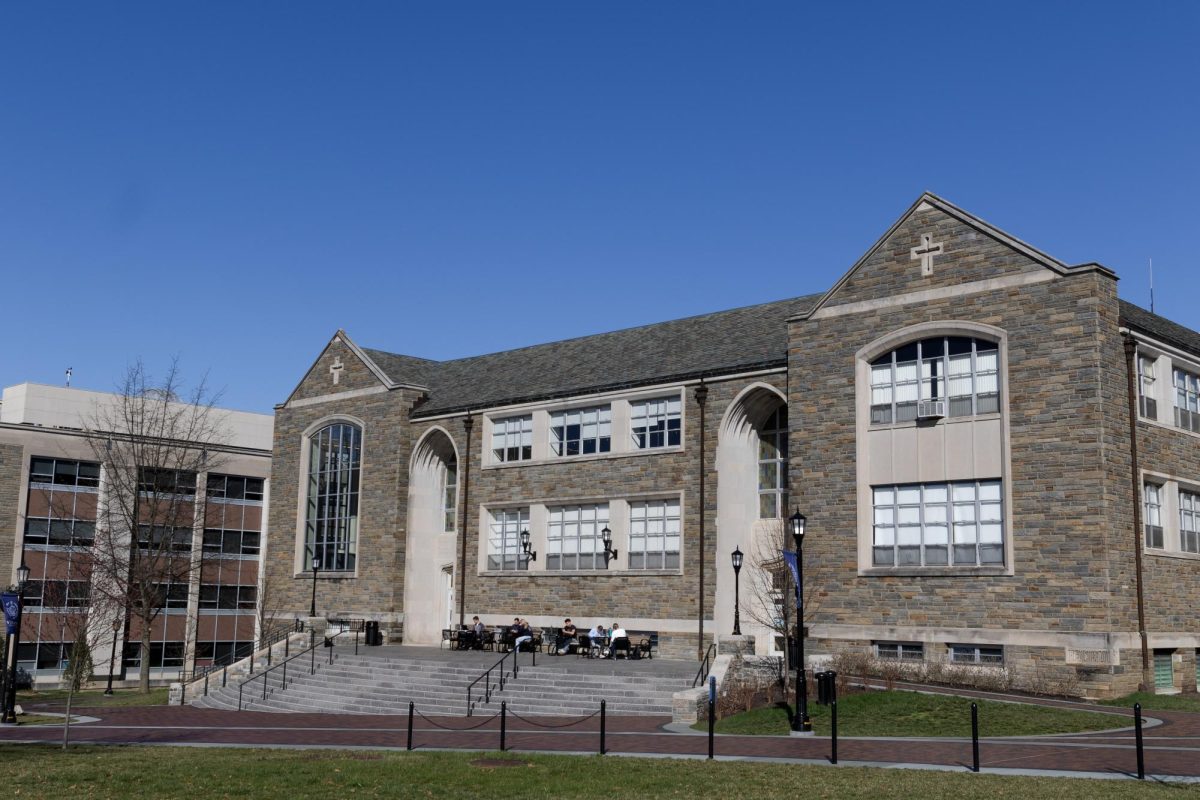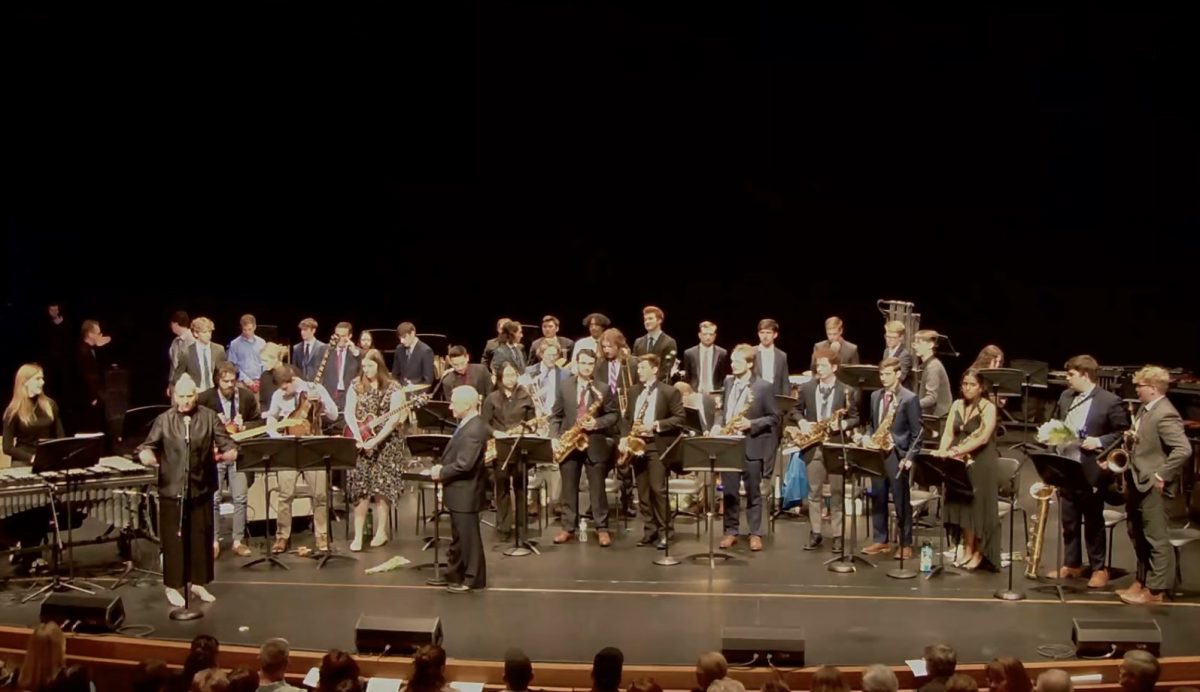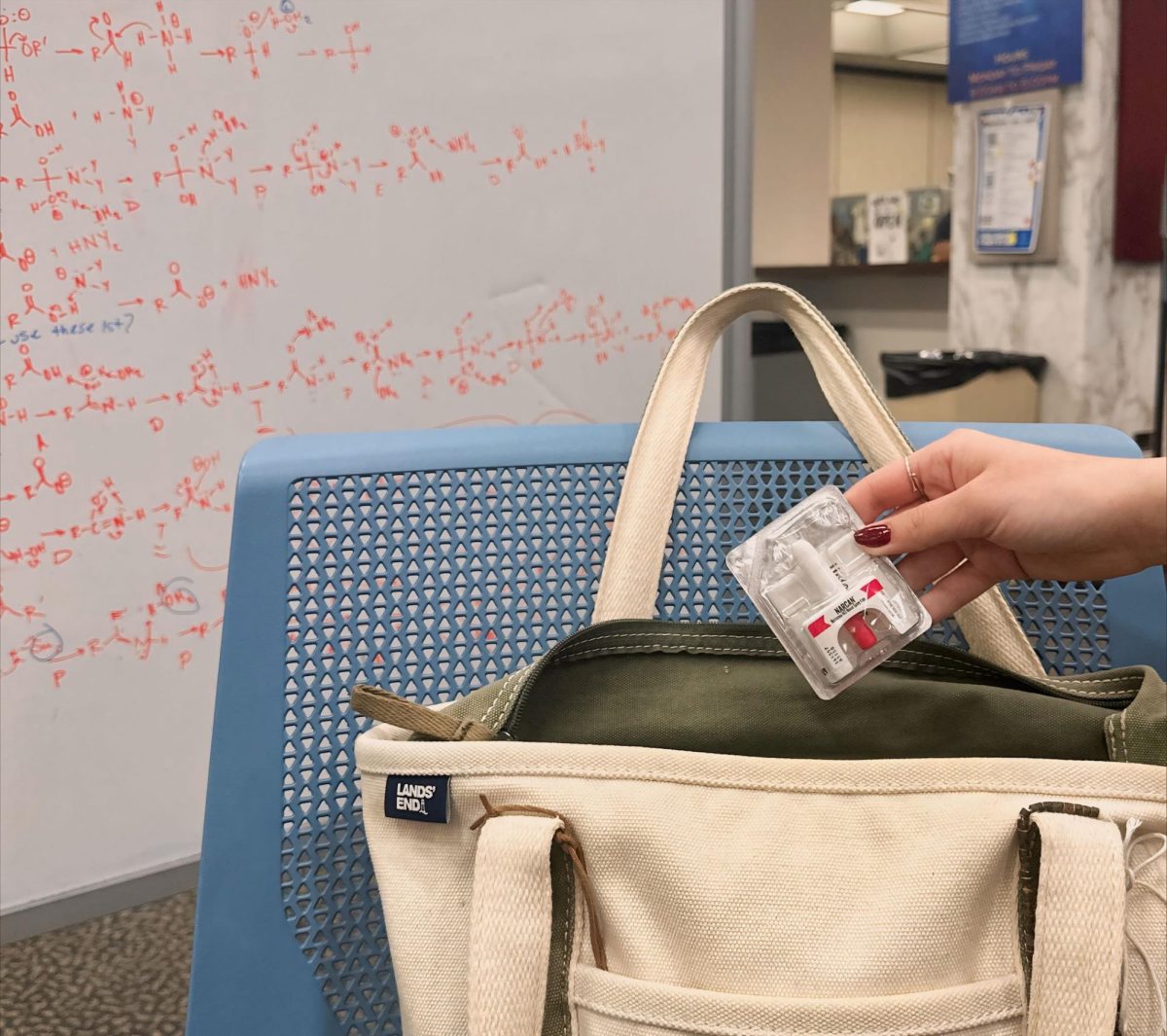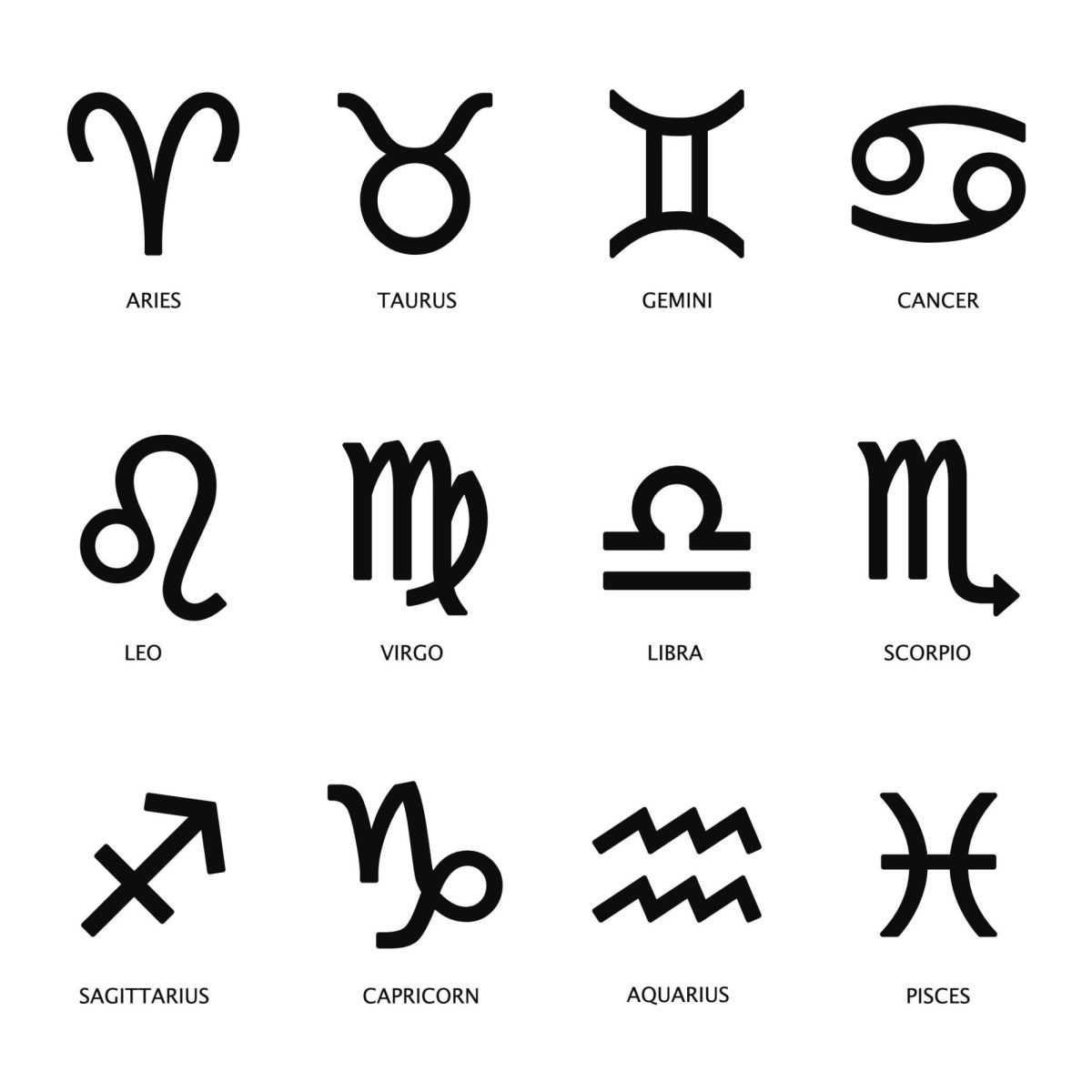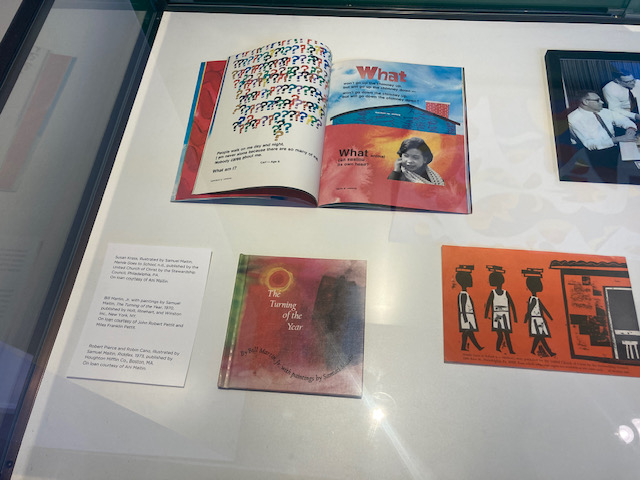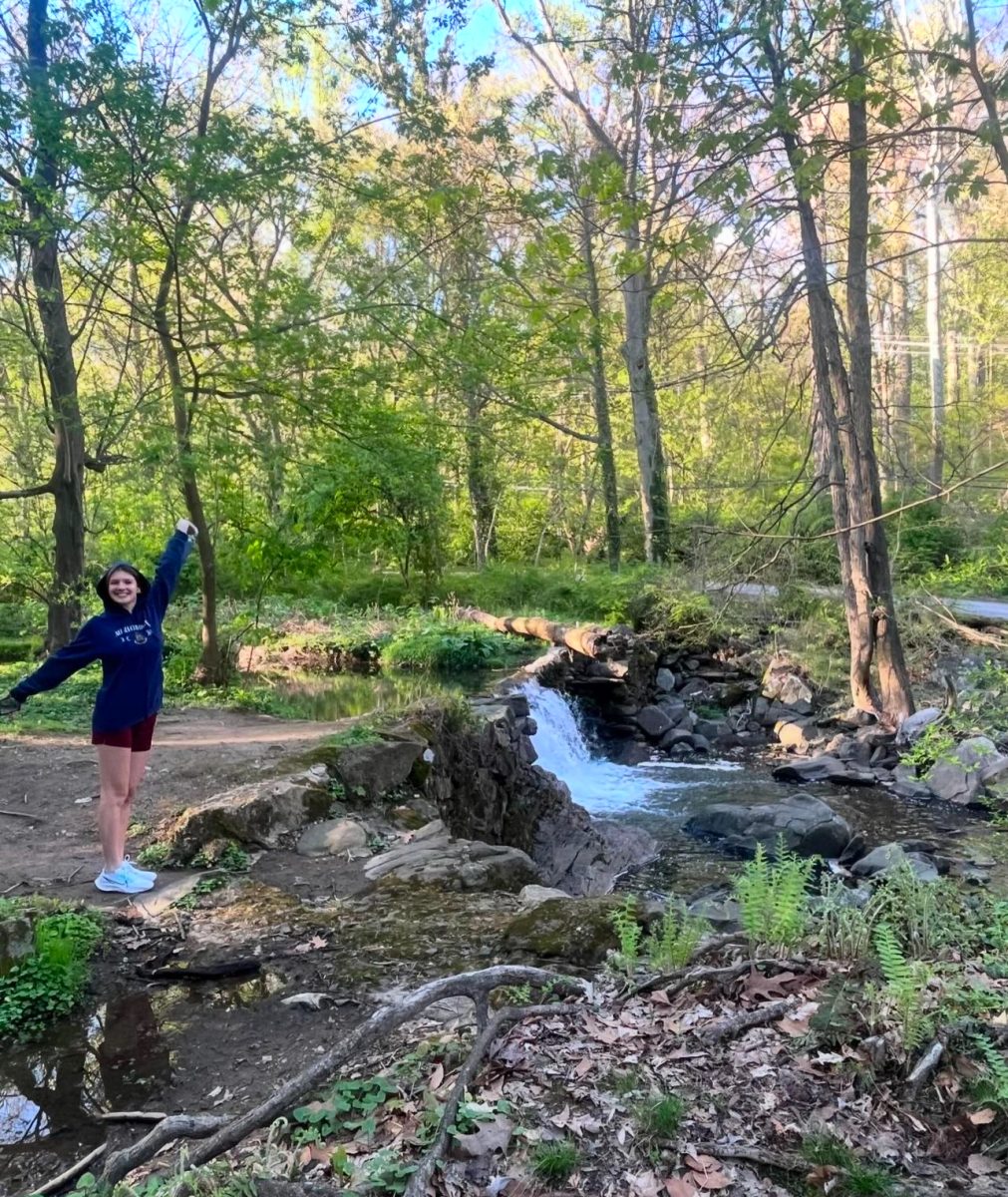On Sept. 25 in the Speaker’s Corner of Falvey Library, three Irish poets, Katie Donovan, Catherine Phil MacCarthy and Jane Clarke, presented Wonders and Realities, a poetry reading on sustainability.
Donovan is a poet, author and journalist who will publish her sixth collection, “May Swim,” in 2024 and is the 2017 recipient of the O’Shaughnessy Award for Irish Poetry. MacCarthy has published a novel and five collections of poetry, most recently “A Change in the Air.” Her awards include the 2014 Lawrence O’Shaughnessy Award for Irish Poetry, the Dromineer Literary Festival Poetry Prize in 2012 and the Fish International Poetry Prize in 2010.
Clarke has published three poetry collections and an illustrated poetry booklet. She received the Ireland Chair of Poetry Travel Award 2022, the Hennessy Literary Award for Emerging Poetry and the Listowel Writers’ Week Poem of the Year in 2016.
The Villanovan had a chance to speak with each of these poets about their work and process, their views on sustainability and their connection with the natural world.Each experienced childhood in rural Ireland, with Donovan spending her formidable years in County Wexford, MacCarthy in County Limerick and Clarke on a farm in County Roscommon.
From a very young age, each woman felt a particular connection to the natural world. MacCarthy thought of “the country as a place she inhabits.” Landscape was not in her vocabulary because the landscape was something she did not simply look at but experienced, and in that way “[the landscape] comes to inhabit [her], as well.”
Donovan’s connection to the natural world is particularly reflected in her love of water, which she grew up near and which she lives within two kilometers of now. She spoke of the privilege of growing up in the natural world as it informed “the sense that what is natural [is what is] freely living.”
Similarly, for Clarke, “nature provided the metaphors” necessary to express her ideas. In that way the exploration of nature within her poetry is an attempt to capture that the natural world is precious, and to communicate the celebration of its beauty but also to lament the loss of the natural world. This appreciation and love of the natural world appears in the poet’s work, though the process of writing poetry is as uncontrollable as the world it aims to embody and present.
Donovan explained the uncontrollable nature of her inspiration saying “poetry comes upon me in an ambushing rush…poems come out of life.” For MacCarthy, poems come from wonder and curiosity, but in that desire to know, she finds “a greater sense of not knowing,” and it is all a very intuitive process. Clarke finds that “poetry is a bit mysterious,” and one must make time for it to come to know it.
Poems are often sparked by personal experiences, memories, and connections and this is certainly true of the work of Donovan, MacCarthy and Clarke. Each poet also has been compelled to write about the world around her, about events and ideas beyond her own backyard, beyond her memories.
Donovan explores social problems often in her poetry with the thread of unfairness and lack of justice driving her response. Her first, as she sees it, “adult poem” was in response to the death of a classmate at the age of 16. This experience of a “fresh outrage” at the unfairness of the tragedy “shocked [her] into writing it.” It is that same intolerance of injustice which inspires her work about the environment.
MacCarthy in writing about the climate crisis often uses her poems to capture “a notion and a dream of a sustainable world.” Her collection “A Change in the Air” captures the ways in which the natural world became so important to many during the pandemic, and why this importance must continue to be appreciated at this moment in time.
As Clarke said, “poetry can help one to understand one’s own life,” and it can also help one to understand nature and to appreciate the risks it faces. Poetry can be a means of connecting with and accessing the natural world and in doing so one can come to truly care for the world.
Each poet was thoughtful and careful in the process of choosing the works she read at Villanova. Various themes and considerations inform this process. Donovan is conscious of the location, season and highlighting the importance of the natural world and sustainability. She also presented poems with a connection to her national identity as an Irish woman, a theme which presents itself in her poetry as a natural result of the way her country has shaped her. MacCarthy selected poems which show “nature as a construct that mirrors an inner life,” to demonstrate the importance of working towards and her dream for a sustainable world. Clarke aimed to touch the audience in some way and placed emphasis on evoking a response from her audience: an increased care for the natural world.
In this reading of poetry, the Center for Irish Studies provided a space to increase our attention to the wonders and realities of the natural world and to elicit care for and protection of our common home.


